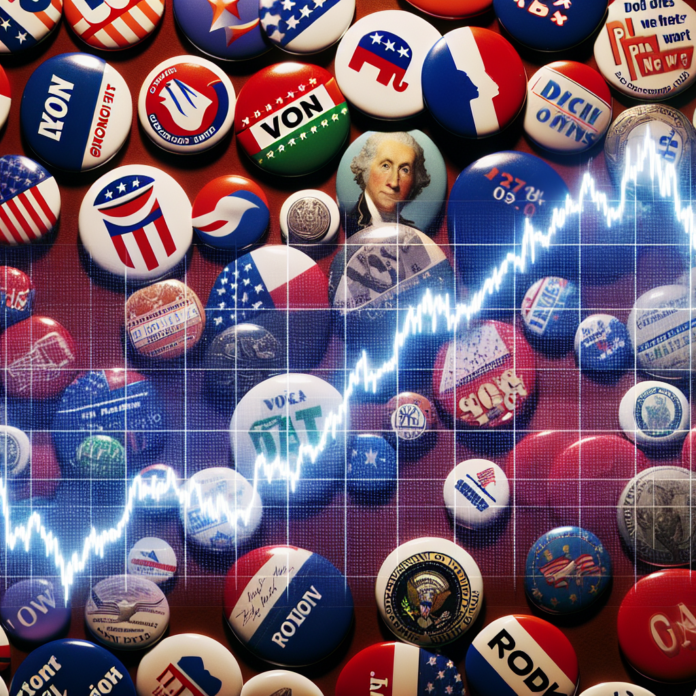Political elections can exert substantial influence on the stock market, and the Dow Jones Industrial Average (DJIA) is no exception. As a barometer of the U.S. economy, this quintessential index often responds to the changing political landscape. Investors and analysts scrutinize elections, as the policies of incoming administrations may significantly impact regulatory environments, economic growth, and ultimately, market performance.
Uncertainty and Market Volatility during Election Cycles
Election years are typically synonymous with uncertainty, as investors speculate on the policies of potential winners and how they might affect the economy. This speculation can increase market volatility, which often leads to short-term fluctuations in the Dow. The Chicago Board Options Exchange (CBOE) Volatility Index (VIX) can serve as a measure of this uncertainty, often spiking during contentious election periods.
Anticipating Policy Changes
Different political parties tend to favor different economic policies, which can have disparate effects on various sectors of the economy. For instance, Democratic administrations may emphasize clean energy and healthcare, potentially benefiting those sectors. Conversely, Republican administrations might implement policies favorable to fossil fuels and defense. The Brookings Institution provides analysis on how these policy directions can affect the economy and, by extension, the Dow.
Post-Election Market Reactions
Historically, the stock market—and by extension, the Dow—tends to react positively once election results are clear, regardless of the winning party. The clarity of outcome and resolution of uncertainty can lead to a relief rally in the markets. In-depth post-election market analysis is often provided by financial news outlets like CNBC, which cover the markets’ responses to election outcomes.
Long-Term Economic Outlook Post-Election
In the long term, the DJIA’s trajectory is influenced less by the immediacy of election results and more by the economic policies enacted by the new administration. For instance, changes in tax policy, foreign trade agreements, and infrastructure spending can have lasting impacts on corporate profits and investor sentiment. Renowned economic research firms like Moody’s Analytics offer insights into how such macroeconomic factors can drive market trends over time.
Investor Sentiment and Behavioral Response to Elections
Investor sentiment and behavior, shaped by political elections, can also sway the Dow’s movements. Leading into and following elections, some investors may choose to reallocate their portfolios based on the anticipated impact of election results on certain industries or the overall economy. Tools and research from investment advisory firms, such as Morningstar, can assist investors in making these decisions.
Conclusion
The influence of political elections on the Dow Jones Industrial Average is a multifaceted phenomenon. From pre-election uncertainties to post-election policy implications, elections embody a period of heightened attentiveness in the stock market. While short-term volatility is a common feature of election cycles, it’s the long-term economic policies set forth by elected officials that ultimately chart the course of the Dow and the broader economy.
Tags: #DowJones, #StockMarket, #PoliticalElections, #MarketVolatility, #EconomicPolicy, #InvestorSentiment, #FinancialAnalysis




 AGF-B.CO
AGF-B.CO